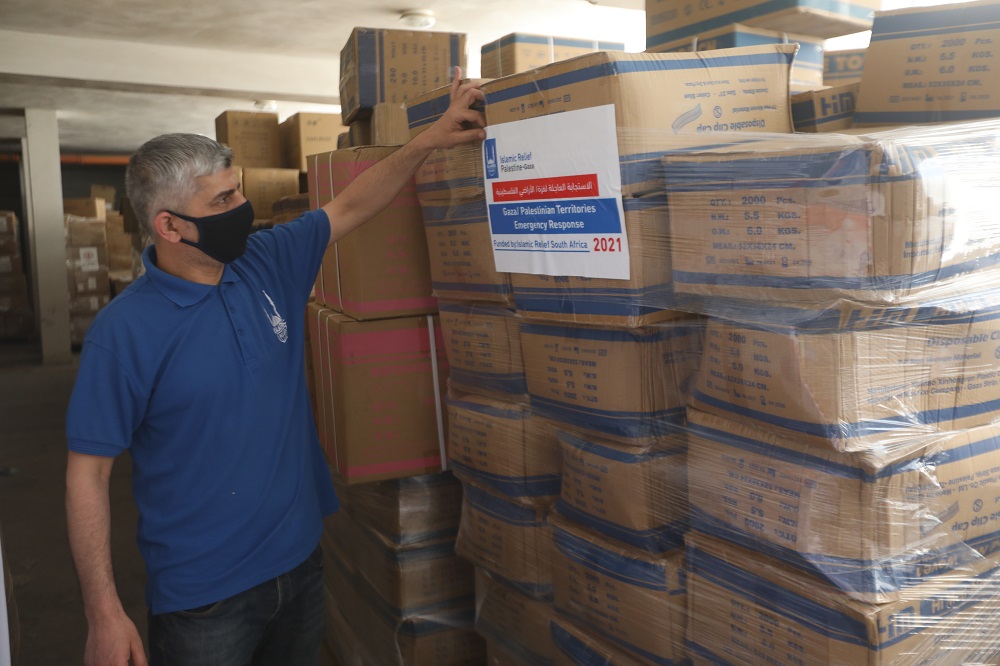After more than a week of conflict left at least 230 dead and many thousands displaced, Islamic Relief’s Bodour Abu-kuwaik reports from Gaza.
A ceasefire came into force in the Gaza Strip in the early hours of Friday morning, thanks to Allah. I still can’t believe that I’m still alive.
Just days ago I was sitting on the floor of my home in the Gaza Strip, trying to work. The roar of planes overhead didn’t stop for a second and I was afraid. It was hard to concentrate when explosions kept shaking my house like an earthquake had struck. Each time, I instinctively jerked my body, scared that my windows will shatter, showering me in jagged glass shards.
I rushed to switch on the TV, to check the news to learn what is going on around me. I then hurried back to my work, before the laptop battery ran out again. I couldn’t keep it on charge because power-cuts lasted over 16 hours a day.
For over a week, more than 2 million people in the Gaza Strip were subjected to relentless, devastating bombing from sea, land and air. This killed more than 230 people – many of them children, women and older people – and injured about 1,900 others.
Residential buildings, streets and vital infrastructure have been destroyed, and once familiar landmarks, such as Maldive Gaza Restaurant and Café now look very different. It is a sad and frightening sight.
My sister lives in the city centre, which is usually a lively, bustling place, thronged with people. A bomb hit a residential tower next to her home.
“The whole neighborhood is reduced to rubble,” my sister said when I called to check on her and her family. “It’s a ghost town now.”
Cut off from safety and necessities in Gaza
According to the United Nations Office for the Coordination of Humanitarian Affairs (OCHA), the bombing drove about 91,000 Palestinians from their homes.
Those able to remain in their homes still faced disaster. For 3 days my family, like many others, struggled even to get water. Without electricity water won’t pump to our homes and both the electricity and water networks have been badly damaged.
The bombing has also damaged our sewage networks, triggering alarm about another looming health crisis. Our health services are already close to collapse after years of blockade and now the Covid-19 pandemic too.
Medicines and medical disposables are in critically short supply, and our hospitals struggle to operate with unreliable access to electricity and water.
